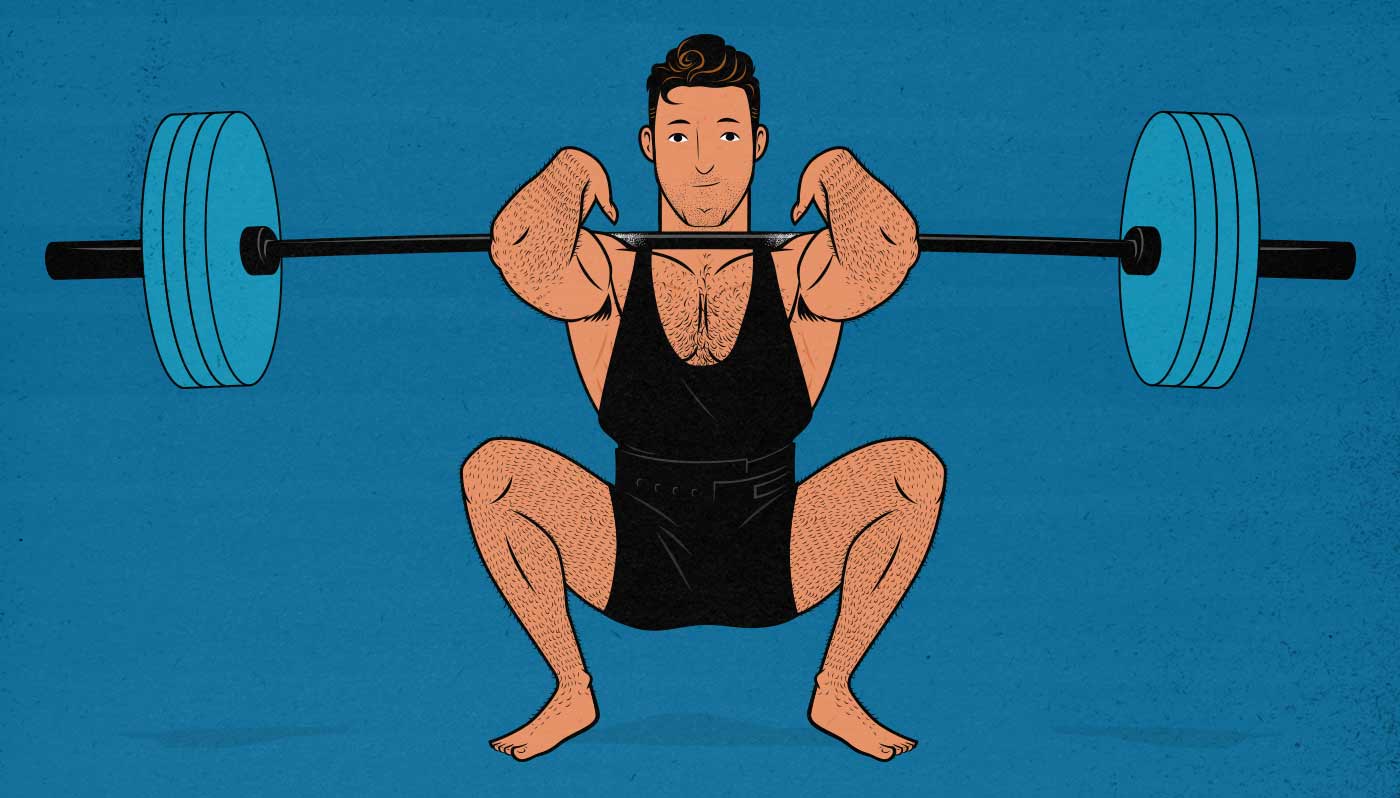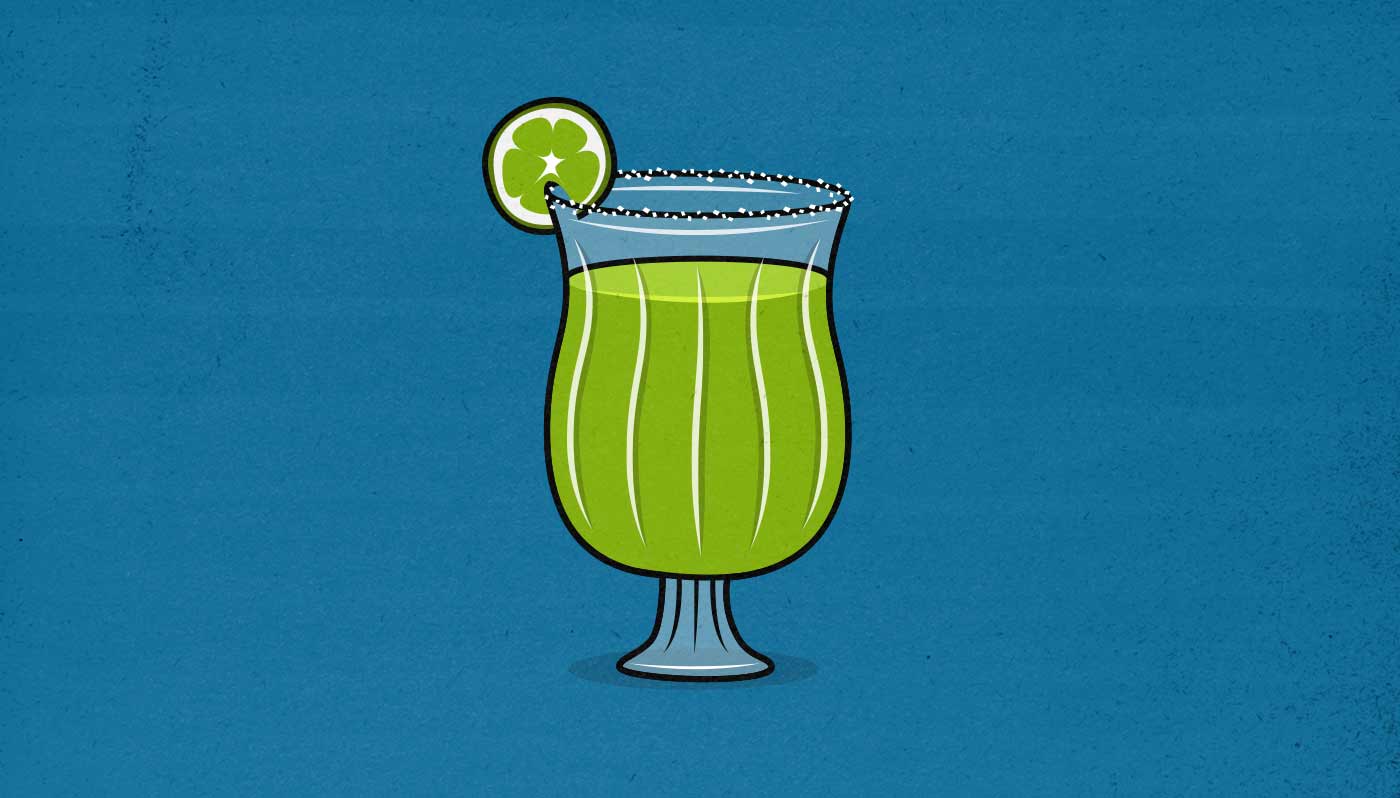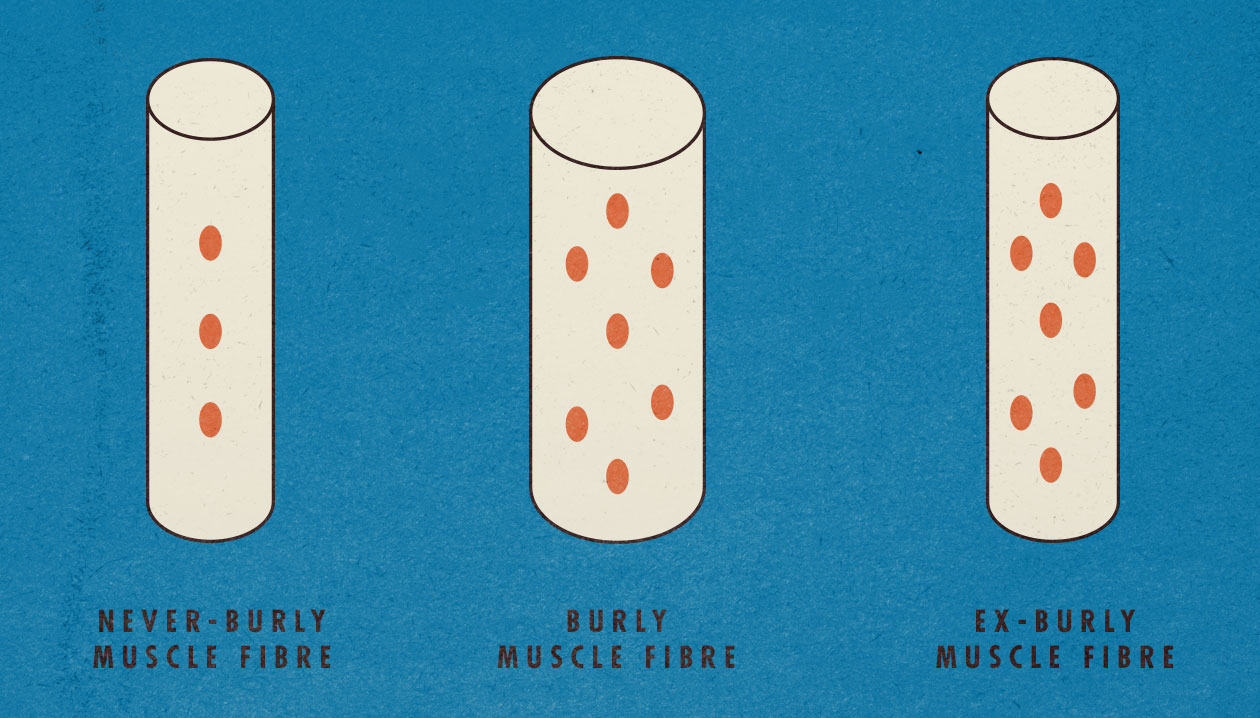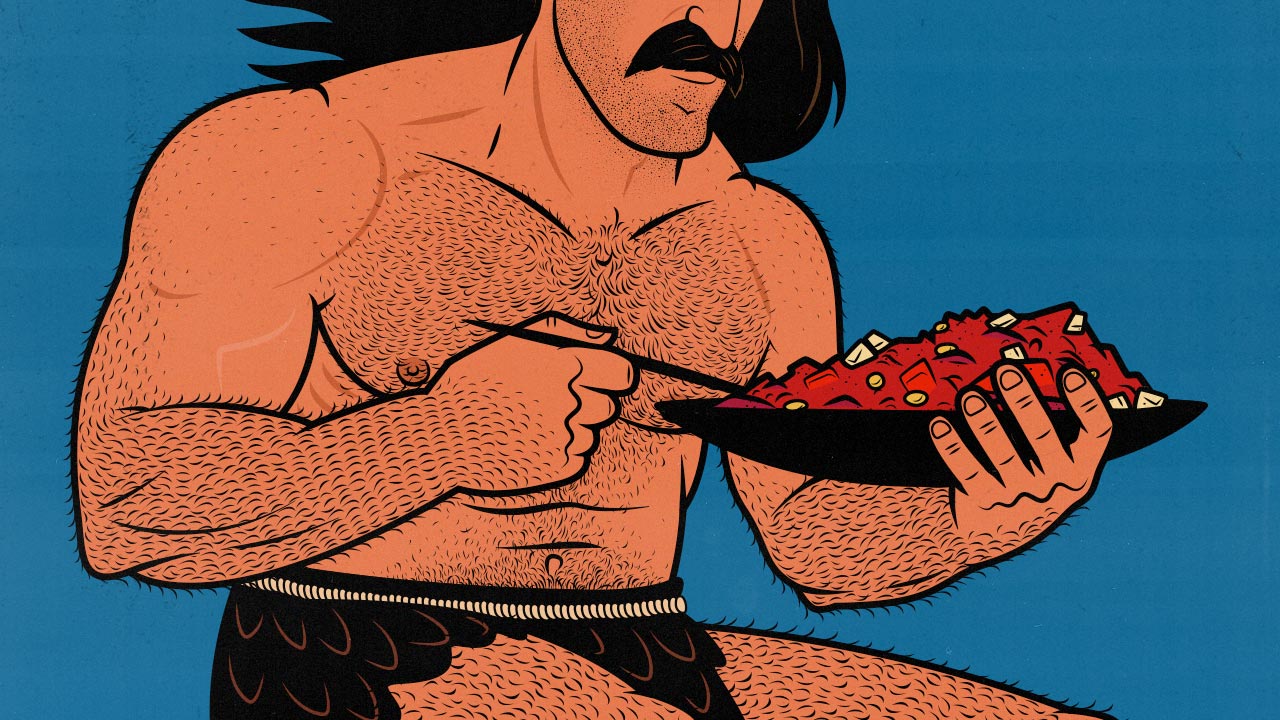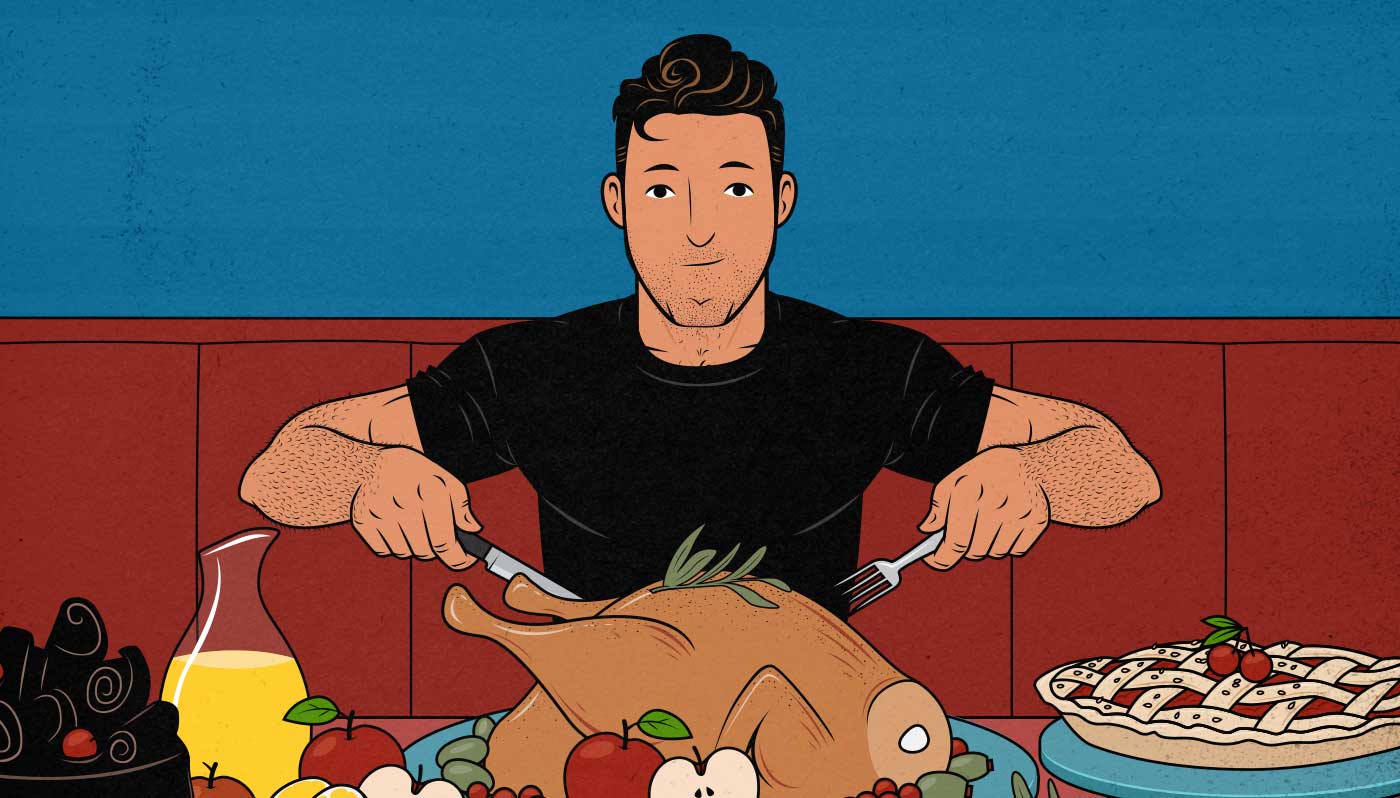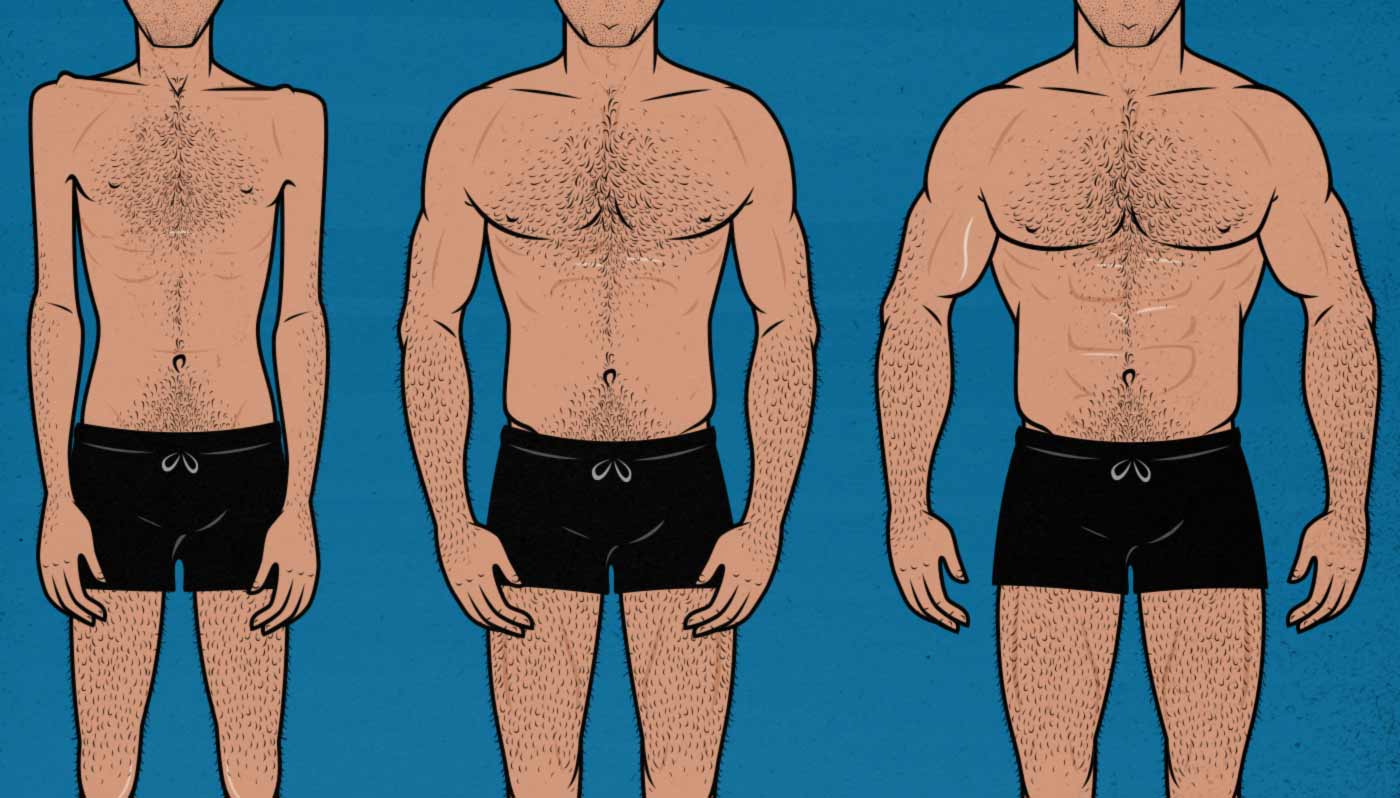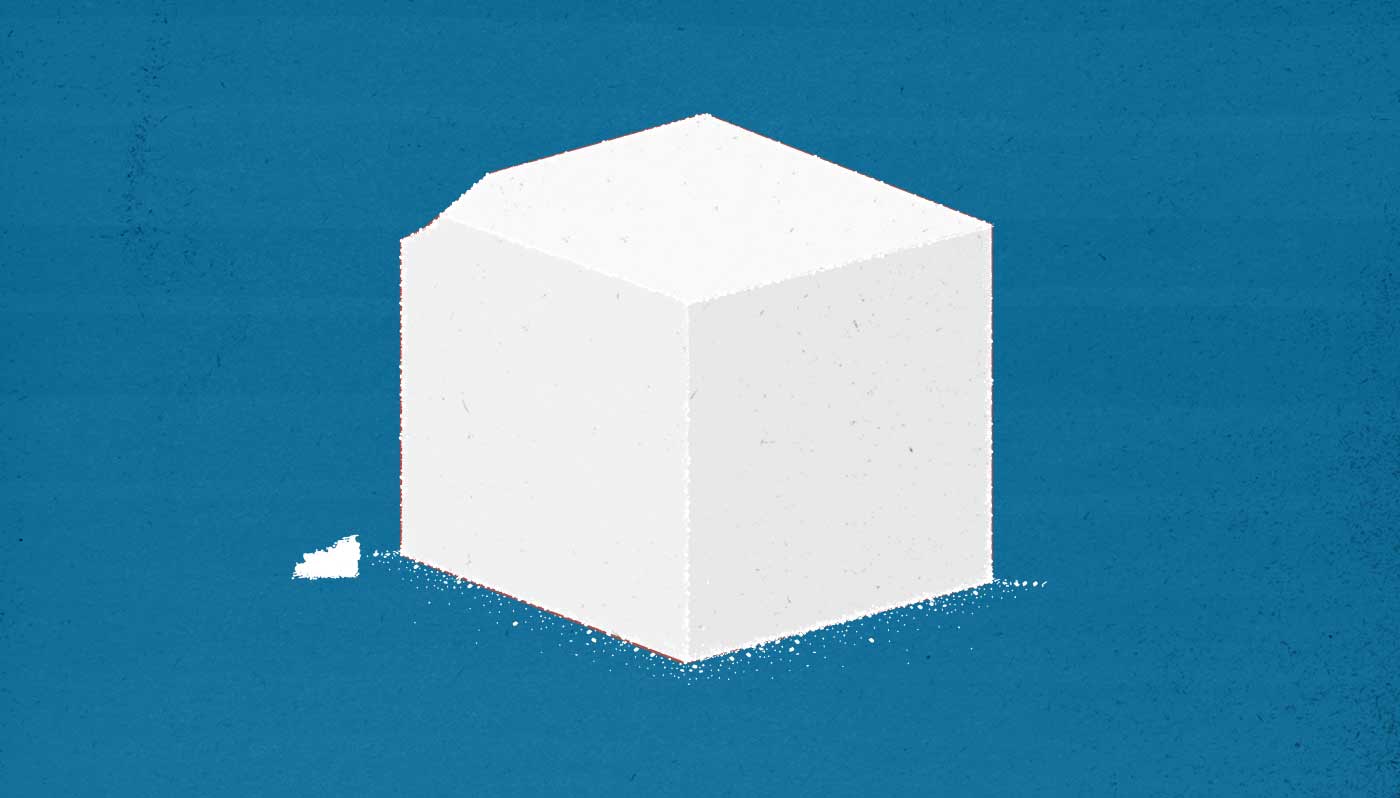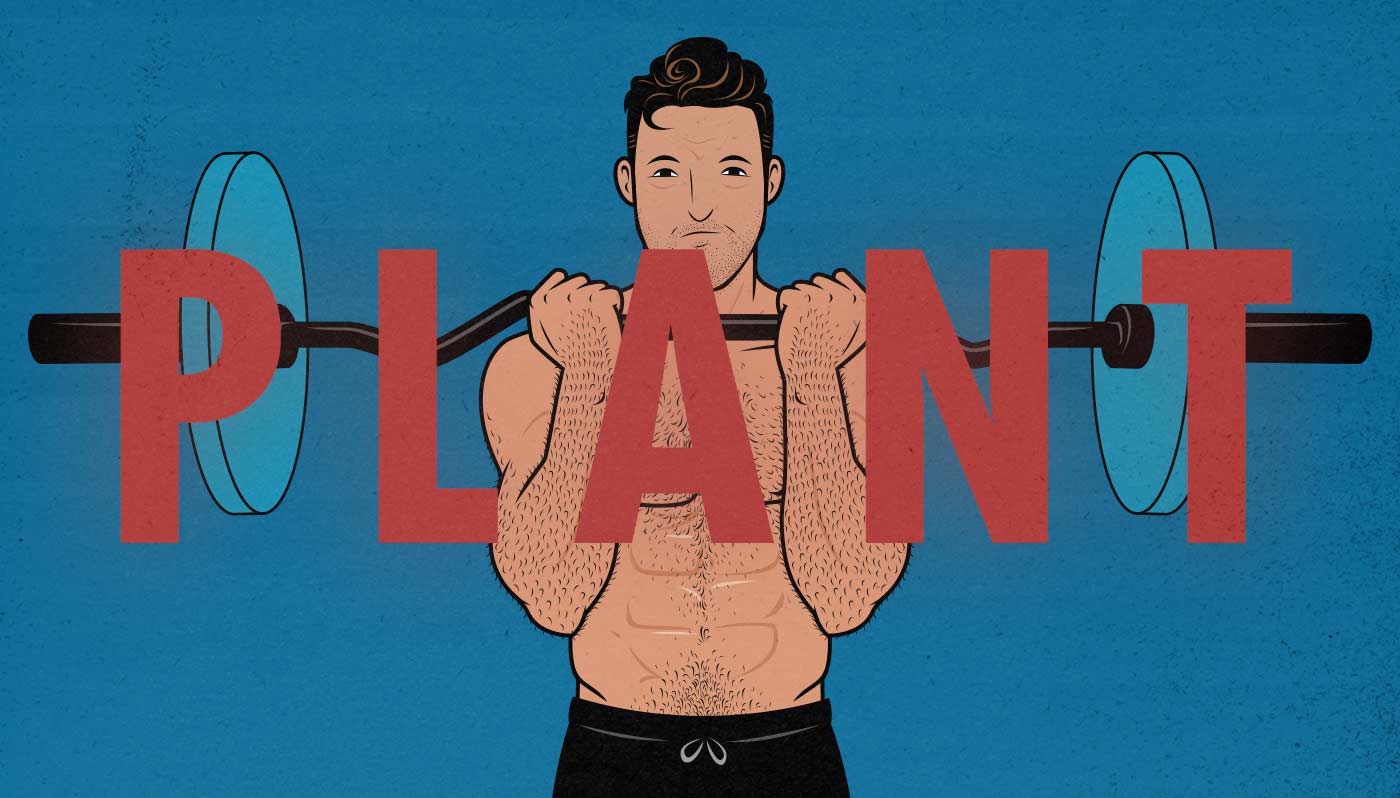Posts by Shane Duquette
The Benefits of Goblet Squats & Front Squats
Squats are the biggest lift, engaging the most muscle mass and stimulating the most muscle growth. And of all the squat variations, front squats are the best for building muscle.
Powerlifters have low-bar squats, which allow them to lift more weight. Athletes have high-bar squats, which allow them to focus on their quads. We usually use goblet squats and front squats, which allow us to stimulate more overall muscle growth, especially in our postural muscles.
Front-loaded squats are a better default for almost everyone else. They let us squat deeper, thicken our back muscles, straighten our posture, and bulk up our serratus muscles. They’re also the safest squat variation, rivalled only by safety-bar squats and hack squats.
Here’s why.
Read MoreHow Fast Should You Gain Weight While Bulking?
I remember being skinny and wanting to gain weight FAST. I didn’t just want to be muscular yesterday, I wanted to be muscular in every single one of my previous lives.
We aren’t just trying to gain weight, though; we’re trying to gain muscle. And if we bulk up too fast, won’t we become skinny fat? That can happen. Not to everyone, but it can happen to some of us. Sometimes. It’s important to understand the risk factors.
Over the past eight years, we’ve helped nearly 10,000 skinny guys bulk up quickly, leanly, and everything in between. Even when dealing with naturally skinny guys, there’s no one-size-fits-all approach.
Let’s discuss the pros and cons of gaining muscle quickly versus gaining it leanly. That way, you’ll know exactly how much weight you should be trying to gain on the scale each week.
Read MoreHow Much Alcohol is Okay While Bulking?
Maybe you’ve heard that beer builds beer bellies, that alcohol can tank our testosterone production, or that drinking too much can impair muscle growth.
All of this is true. In fact, it gets worse. Alcohol can also disrupt our sleep, which can further reduce muscle growth, cause extra fat gain, and harm our workout performance.
Worse still, alcohol can slow digestion, making it harder for us to digest big bulking diets. It can also negatively impact our appetites, making it harder to gain weight.
However, these aren’t the effects of drinking, these are the drinking too much. As with most good things in life, it’s the dose that makes the poison.
Maybe you’ve even heard that having a drink or two per day is better than having none. Is that true?
Read MoreBulking Set Point and “Muscle Memory”
You could think of your body as having a built-in bodyweight thermostat. You might have your weight set at, say, 130 pounds. If you go above 135, your appetite automatically turns off until you get back to 130 pounds. If you go below 125 pounds, your appetite automatically turns on until you get back up to 130 pounds. There’s more at play here than just your appetite, but you get the idea: your body is automatically regulating your weight around a given “set point.”
When you’re bulking up, you’re fighting that set point. It’s trying to regulate your body weight back down. It’s trying to eliminate all the progress you’ve made.
So how do we get your set point to 150, 180 or even 200 pounds? Is that even possible? That’s what this article is about.
Read MoreThe Pros and Cons of Clean and Dirty Bulking
Should you eat a clean bulking diet, a dirty bulking diet, or does it not even matter? To gain weight, we need to eat in a calorie surplus. The cleaner the foods, the harder it is to get into a surplus. The dirtier the calories, the easier it is to gain fat. Or at least that’s how the story’s often told.
I’ve tried both clean and dirty bulking. I’ve had success with both methods. I’ve gained about 35 pounds from dirty bulking, another 35 from clean bulking, bringing me from 130 up to 200 pounds. I’ve failed with both approaches, too.
Over the past eight years, we’ve helped over 10,000 other skinny guys bulk up. We’ve heard all the horror stories and celebrated too many successes to count. We’ve seen firsthand how the quality of our diets affects the composition of our gains.
There’s also a fairly large body of research investigating different bulking diets. We’ve combed through all of it and consulted with the top experts.
Let’s delve down into the depths of clean and dirty bulking.
Dive InThe Best High-Calorie Bulking Foods for Skinny Guys
If you’re trying to bulk up, what foods should you eat? The obvious answer is to eat high-calorie foods, making it easier to get into a calorie surplus. That’s true. But there’s a catch, especially if you’re trying to build muscle quickly, leanly, and healthfully.
We’ve been helping skinny guys bulk up for over a decade now. We’ve each gained over 60 pounds. Marco has studied under the top experts and worked with professional and Olympic athletes. Plus, there’s a rich bulking tradition we can draw wisdom from.
If you’re smart with your food choices, bulking becomes much easier. You’ll find it more comfortable to eat in a calorie surplus, build muscle faster, store less fat, have fuller muscles, better workout performance, and bigger muscle pumps.
Dive InHow to Eat More Calories (to Gain Weight)
To eat more calories, eat more often, focusing on dense foods that are easy to chew, lower in fibre, or lower in water. Think of foods like trail mix, ground meat, smoothies, yogurt, milk, bananas, and dark chocolate.
Even then, though, many skinny guys still have trouble eating enough calories to gain weight. There’s a good reason for that: we often have faster metabolisms and smaller stomachs. Unfortunately, the only way to gain weight is to get into a calorie surplus. I know that’s a tough bite to swallow, especially if you’re already stuffed to the gills, but there’s no way around it.
To make matters worse, we aren’t just trying to gain weight, we’re trying to build muscle. That adds a few other considerations. Protein is very filling, but we need to eat enough of it. Fat is very calorically dense, but we need to make sure we aren’t overdoing it. And we can’t rely on junk food to boost our calories up. That makes gaining weight much harder.
So what we want to do is design a diet around calorie-rich foods that improve our digestion and make it easier to build muscle quickly and leanly.
Dive InAre You a Beginner, Intermediate, or Advanced Lifter?
How can you tell whether you’re a beginner, intermediate, or advanced lifter? That’s a good question. The answer can change which exercises you build your routine around, which workout program you pick, how quickly you can add weight to the bar, and how quickly you should gain weight.
Let’s delve into different ways of determining your lifting level. We’ll demonstrate why some of those methods are flawed, then cover a more useful way of doing it.
Dive InHow Much Sugar is Okay While Bulking?
Sugar is often criticized for causing weight gain. It’s technically a calorie surplus that causes the weight gain. But sugar can certainly make it easier to get into a calorie surplus, and so increasing our sugar intake can indeed lead to weight gain.
What if we’re trying to gain weight? For a lot of us hardgainers, the idea of sugar causing accidental weight gain sounds like a potential benefit, and it can be. In fact, when Marco first started helping me bulk up, one of the first things he did was have me add some sugar (dextrose) into my workout shakes. It’s a common trick that strength coaches use with high-level athletes to help them get into a calorie surplus. Marco cut his teeth by helping college, professional, and Olympic athletes build muscle, so it was the first thing he thought of when I told him that I was having trouble gaining weight.
Look at drinks like Gatorade, designed for the Gators from the University of Florida to keep them fueled up while playing sports. It’s full of sugar. Or look at the recovery drinks we see at the supplement stores. Again, full of sugar (or starch). The same is true with weight gainers. Their main ingredient is usually either maltodextrin or dextrose—both of which are quickly broken down into sugar as soon as we drink them. Sugar is the main ingredient in bulking supplements and sports drinks.
In the general public, though, most skinny guys take the opposite approach. They’ve heard that processed sugar will raise our blood sugar levels and can lead to various health issues, including, of course, fat gain. So when they start bulking up, they intentionally try to reduce their intake of processed sugar. Now, there’s certainly no problem with that, and most health experts recommend keeping our sugar intake quite low anyway—often limiting sugar to 25% of our total calories but sometimes as low as 10% of our total calories (study).
However, the idea of limiting our sugar intake to 25% of our calories is based on the idea that eating more processed sugar can lead to nutrient deficiencies. If we eat more candy, that can mean eating fewer fruits and veggies. But that’s not all that relevant to us skinny guys who are intentionally driving ourselves into a calorie surplus to build muscle. It’s especially irrelevant if we’re getting that added sugar from sources that are rich in micronutrients, such as from fruit, fruit juice, honey, and milk. In that case, even though our sugar intake would be increasing, we’d be consuming more micronutrients.
Furthermore, sugar has a different impact on skinny guys who are underweight and exercising than it does on people who are overweight and sedentary. We don’t have the same issues controlling our blood sugar levels, removing most of the downsides to our general health. And, when combined with a good lifting routine, raising our intakes of sugar can lead to leaner muscle gains than increasing our intakes of fat.
So, what effect does sugar have on skinny guys as we bulk up? How much added sugar is helpful. How much is harmful? And how can we make it easier to bulk up quickly and leanly?
Read MoreHow to Bulk on a Vegan Diet (Plant-Based Bulking)
Vegans can build muscle just as quickly and effectively as anyone else, provided they eat a proper plant-based bulking diet. Vegans tend to be healthier than the average person (study), and plant-based diets lend themselves quite well to building muscle. After all, many of the best bulking foods are plants: bananas, oats, rice, legumes, leafy greens, carrots, garlic, and so on (study).
We’ve been helping skinny guys bulk up for over a decade now, and our vegan members have always done just as well as everyone else.
Still, there are a few common mistakes vegans make. And there are some extra considerations to keep in mind. Let’s go through all of it.
Dive in
